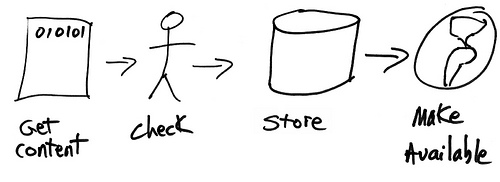Sustainability outside of the Neoliberal box
Sustainability hangs like an albatross over many DH projects. Funding is short term, projects come and go. Granting foundations have made it abundantly clear that they expect continuity measures beyond the period of a grant to insure greater permanence to their investments. Moreover, many DH practitioners find themselves in conditions of contingent funding, one grant […]
Continue reading



